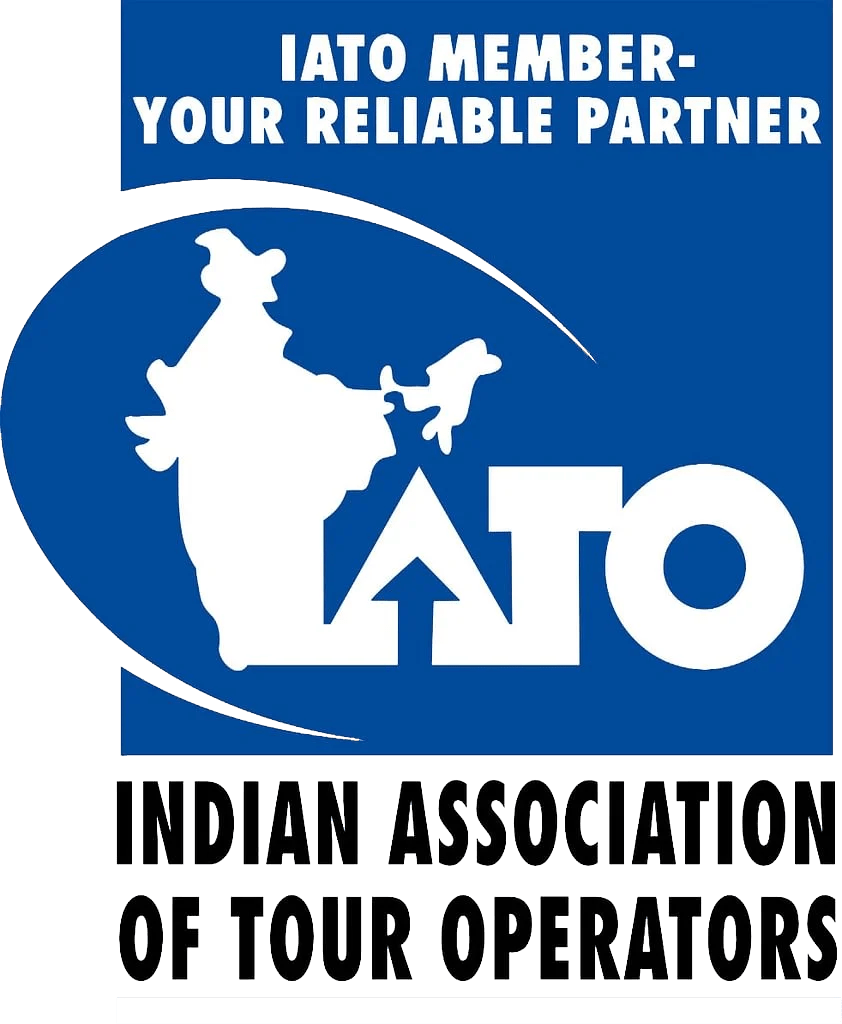You will arrive at Mumbai Airport. Following customs, immigration formalities and baggage collection, our representative will meet you as you EXIT the ARRIVALS TERMINAL building after which you would be transferred to your hotel.
Mumbai, the biggest metropolis of India, is a city that virtually never sleeps. In this city of dreams, life never appears dull or boring, especially due to the presence of its interminable chaos and action.
Overnight at the hotel.
After breakfast, excursion to the island of Elephant Caves (Closed on Monday) is an hour away from Mumbai by motor launch. The cave temples here were excavated between the 5th and 8th centuries AD and famous for their magnificently sculpted panels. The best known is the one that depicts the Maheshmurti – a three – headed image of Lord Shiva, which signifies the creator, preserver and destroyer of this universe as per Hindu mythology. The Portuguese named this island after a large stone elephant that was found near the landing. In the afternoon, city tour of Mumbai including the visit of Prince of Wales Museum (Closed on Monday) built in grand Indo Saracenic style, drive past Marine Drive, Mumbai’s most popular seaside promenade. Also visit the Jain temple, Mani Bhawan where Mahatma Gandhi used to stay, and the Dhobi Ghat. Later, drive past the Flora Fountain, the colourful Crawford Market and Victoria Terminus train station.
Late Night Walk around Colaba, Kalaghoda A complete melting pot of artistic and architectural expressions, this walk from Gateway of India past the Yacht Club, Regal Cinema, NGMA till Jehangir Art Gallery and Keneseth Eliyahoo is a visual delight. As you walk along this route, you will realize that this walk is all about gaining an insight into how the British, the Jews and the local business communities (Marwaris/ Parsis/ Bohris/ Gujaratis/ Jains) came together to create a throbbing cultural hub here...a tradition which continues to be so. End the walk with lip smacking Kathi rolls and some food for thought! Overnight stay at the hotel.
Morning in time transfer to Airport to board the flight for Nagpur Arrive at NagpurAirport you will be met by our representative & drive to Pench- Pench- it wasn’t until 1992 that Pench was included under the umbrella of Project Tiger. Today, the Reserve covers districts of Madhya Pradesh and Maharashtra. The park is predominantly a teak forest, but other hardwoods and flowering trees support a rich and diverse array of birdlife too. Local villagers, mostly Gonds, will tell you about their local god, Mansingh Deo. He was a legendary figure who was believed to have supernatural healing powers and would ride into the local bazaar on his tiger. There are two temples dedicated to him, the Chhota Mansingh and Bada Mansingh temples which are worth a visit. The park has three tourism zones: Touria, Karmajhiri and Jhamtara. Tiger is the main cat species but commonly seen wildlife includes chital, sambar, nilgai, wild boar and jackal. Other wild animals found are leopard, sloth bear, wild dog, porcupine, jungle cat, fox, striped hyena, herds of gaur, four- horned chowsingha and barking deer. There are more than 170 species of birds including several migratory ones. Some of them are crimson- breasted barbet, red-vented bulbul, racket-tailed drongo and magpie robin with lesser whistling teal, pintails, river terns and northern shovellers on or near water bodies. Seeking a tiger doggedly can cause you to miss the whine of the cicada, the sight of the common butterfly or the shrill call of a crested serpent eagle. It’s India’s densest population of prey species, nearly 25,000 of them, including spotted deer, wild pig and Sambar deer. In April when the Pench River dries out, the animals use dohs or perennial springs as waterholes, or crowd the shoreline and tender grasses of a receding reservoir. It acts as an artificial wetland where you can see hordes of water birds sitting on what were the tree stumps of flooded woodlands. Upon arrival check in Hotel/Resort/Camp
Dinner & Overnight stay at Hotel/Resort/Camp.
Breakfast, Lunch & Dinner at Hotel/Resort/Camp Overnight Stay.
Morning Game Drive by shared Jeep at Pench National Park. After breakfast drive to Kanha National Park - This is the country about which Kipling wrote so vividly in his Jungle Books. The same abundance of wildlife and variety of species still exists today and the park which forms the core of the Kanha Tiger Reserve (1,945 sq. km) within the game reserve, created in 1974, also protects the rare hard-ground-adapted barasingha (swamp deer). George Schaller, the zoologist, conducted the first ever scientific study of the tiger here and research is also being done on deer and langur habitat. The park has deciduous hardwoods including sal and stands of bamboo, rolling grasslands and meandering stream of the Banjar River. It lies in the Mandla District in the Makai Hills in the eastern part of the Satpura Range.Originally the area was famed as a hunter’s paradise but now the valley has been well developed as a national park. Kanha has 22 species and the most easily spotted are three-striped palm squirrel, common langur monkey, jackal, wild pig, cheetah, rasingha and blackbuck. Less commonly seen are tiger, Indian hare, dhole (Indian wild dog), sambar and gaur. Rarely seen are Indian fox, sloth bear, striped hyena, panther (leopard), nilgai (blue bull), Indian porcupine, wolf (outside park proper) and the Indian pangolin (sometimes called the scaly anteater). Kanha has 230 species recorded, more to be found. Good vantage points are in the hills where the mixed and bamboo forests harbours many species. Commonly seen species are leaf warblers, minivets, black ibis, common peafowl, racket-tailed drongo, hawk eagle, red-wattled lapwing, various species of flycatcher, woodpecker, pigeon, dove, parakeet, babbler, mynah, Indian roller, white-breasted kingfisher and grey hornbill. Arrive Kanha & Check in Hotel/Resort/Camp. Time permitting – Proceed for a Safari to the Park
Breakfast, Lunch & dinner & Overnight at Hotel/Resort/Camp.
Breakfast, Lunch & Dinner Overnight at Hotel/Resort/Camp.
Breakfast, Lunch & Dinner Overnight at Hotel.
After breakfast drive to Bandhavgarh.- (pronounced Bandogarh) is not very far south of Rewa, famous as the place in which the (albino) white tiger originated. Now it is only found in zoos. Before becoming a National Park in 1968, it was the game preserve of the maharajas of Rewa. Though it involves quite a journey, you may be rewarded with sighting one of the few tigers. The management has embarked on a programme of conservation. Protection from disease, fire, grazing and poaching have all been factors in its recovery as a wildlife area. The park is set in extremely rugged terrain with many hills. The marshes which used to be perennial now support a vast grassland savanna. There are also interesting cave shrines scattered around the park, with Brahmi inscriptions dating from the 1st century BC. You can visit the archaeological remains of a fort believed to be 2,000 years old where you may spot crag martins and brown rock thrush. The park has a wide variety of game and has a longer `season’ than Kanha. Its main wild beasts are tiger, leopard, sloth bear, gaur, sambar, chital, muntjac, nilgai, chinkara, wild pigs. In 1990, a census revealed that the tiger population had grown from nine in 1969 to 59, sambar from 111 to over 4,500 and spotted deer from 78 to over 7,000. The tigers, whilst elusive, are increasingly seen. The flowering and fruit trees attract woodland birds, which include green pigeon, Jerdon’s leaf bird, crested serpent eagle and variable hawk eagle. Afternoon Game Drive at Bandhavgarh National Park.
Breakfast, Lunch & Dinner Overnight at Hotel.
After breakfast drive to Khajuraho Upon arrival Check in Hotel.
Khajuraho was once the religious capital of the ChandelaRajputs, a Hindu dynasty that ruled this part of India from the 10th to the 12th centuries. The Khajuraho temples were built over a span of a hundred years, from 950 to 1050, with the whole area enclosed by a wall with eight gates, each flanked by two golden palm trees. There were originally over 80 Hindu temples, of which only 22 now stand in a reasonable state of preservation, scattered over an area of about 21 km² (8 square miles). Afternoon proceed for half city tour – Western & Eastern Temples. The tour of Khajuraho will concentrates on the famous erotic temples, which represent some of the finest examples of temple architecture in Northern India. The remote location of Khajuraho meant that the temples were unharmed by Muslim invaders and as a result, the intricately fine carvings are in very good condition and are said to represent life in heaven. They were built during the mighty Chandela dynasty; the majorities were constructed in a sudden burst of creative and religious energy, between the mid-10th and 11th centuries. After ruling for about 500 years the Chandela dynasty fell to the might of Islam and consequently the religious centre of Khajuraho was abandoned. The temples remain as a reminder of a society that believed in the full enjoyment of life, with all the senses being a path to nirvana. Of the eighty-five original temples only 22 remain, but many are in very good condition. You visit the Kandariya Mahadeva, the Chatrabhuj, Parswanath and Ghantai Temples, each remarkable for its beautiful design and architecture.
Overnight at Hotel.
Breakfast at Hotel Later drive to Jhansi enroute visiting Orchha-Overlooked by the modern era, this beautiful medieval town, was once the capital of Bundela Kings. Built along the banks of the river Betwa, through a rugged countryside, it still retains the captivating air of a bygone era. Amongst the various imposing edificies, of particular interest are the Jehangiri Mahal, built by Raja Bir Singh Deo to commemorate the visit of the Moghul Emperor Jehangir, the Raj Mahal and the Laxminarayan temple, both noted for their fine frescoes and mural paintings. After lunch at Orchha Transfer to Jhansi Railway station to board the train for Agra Arrive Agra and transfer to hotel. Agra is one of the most famous tourist spots of the country. The city, situated on the west bank of river the Yamuna, is known world over as home to a wonder of the world, Taj Mahal. Evening Indian Home Visit – Cooking Demonstration with Dinner Food is an integral part of Indian life. Every region has something special to offer in the form of flavours and recipes. One of the best ways of learning these special dishes is under the tutelage of a host and we are happy to provide cooking demonstration to guests. Discover why cooking in India is not, only about slaving over a hot stove. Understanding spices: India is the land of spices. Discover the true flavor and medicinal properties of home-grown Indian spices& indulge in a candid conversation with the delightful host during the dinner.
Overnight stay at the hotel.
Visit Taj Mahal by Sunrise. The Taj Mahal is everything that has been said about it and more. Taking 22 years and 20,000 men to build, the white marble was quarried 200 miles away and was transported to the site by a fleet of 1000 elephants. Built by the Mughal Emperor Shah Jahan as an expression of his love for his wife Mumtaz Mahal, in mid 17th century, the Taj Mahal is truly one of the wonders of the world. Though the Taj appears to be amazingly perfect from almost any angle, it is the close-up marble inlay work, which is really astounding. You will have ample time to view and be mesmerized by this outstanding piece of architecture. (Note: Taj Mahal is closed on Fridays for public visit.) After breakfast, visit Agra Fort- Agra Fort, an outstanding example of Mughal architecture. Agra Fort - the seat and the stronghold of the Mughal Empire under successive generations. This was the seat of Mughal rule and administration and the present structure owes its origins to Akbar who erected the walls and gates and the first buildings on the eastern banks of Yamuna River. Shah Jehan added the impressive quarters nd the mosque while Aurangzeb added the outer ramparts. Visit its Hall of Public Audience and its Royal Pavilions. Later drive to Delhi. Arrive Delhi and check-in at the hotel. Perhaps there is no other capital city in the world so steeped in history and legend as the Indian capital Delhi. It was the magnet, which drew the Mongols, Turks, Persians, Afghans, Mughals and the British, all of whom contributed to its glorious but turbulent past. The fascination with Delhi was such that even though it was abandoned many times, its rulers returned to it again and again rebuilding it at least seven times. Today, the twin cities of Old and New Delhi still intrigue Indians and tourists alike as the cultural and political capital of the largest democracy in the world. Rest of the day at your leisure.
Overnight stay at the hotel.
- A partnership based on mutual trust and transparency,
- Equipped to handle the most complex travel logistics with meticulous attention to detail and impeccable service.
- Expert Tour Managers and Trail Leaders ,who, with their experience and knowledge share the regions history , customs, and culture.
- Stringent Quality Control to monitor guest feedback and constantly work on improving in areas that require attention.
- Language speaking staff both in Operations and Airport assistance .
- Independent Travelers- Customized & Tailormade.
- Group Tours
- Special interest Tours
- Incentives
- Cruises
- Conferences
- Active Holidays
- Soft Adventure
Kolkata - Guwahati - Kaziranga - Dimapur - Kohima - Khonoma - Kohima
Delhi – Haridwar – Rishikesh – Dehradun – Shimla – Kalka - Delhi
Delhi - Patiala – Amritsar – Tarn Taran – Wagah Border - Dharamasala
Delhi - Sultanant - Dynasties - Shajahanabad - Delhi - Abroad
Cochin -Alleppy - Calicut - Vythiri - Mysore - Hasan - Hospet - Badami – Bijapur – Solapur
Bangalore - Mysore – Hassan - Chikmangalur - Hospet – Hampi - Hospet
Bhubneswar – Konark – Puri – Raghurajpur- Pipili – Dhauli – Bhubneswar
Delhi - Agra – Fatehpur Sikri – Jaipur – Nimaj – Jodhpur – Journey to Marwar
Delhi - Nawalgarh - Khimsar - Jodhpur - Kumbalgarh -- Udaipur - Deogarh - Jaipur - Karauli
Mumbai - Nagpur – Pench - Kanha - Bandhvgarh - Kahjuraho - Orchha - Jhansi
Delhi - Samode - Jaipur - Ranthambore - Agra - Delhi
Delhi - Agra - Gwalior - Jhansi - Khajuraho - Orchha - Jhansi - Bhopal
Mumbai – Rajkot – Gondal – Palitana – Bhavnagar - Ahmedabad – Mount Abu
Bangalore – Nagarhole - Bandipur - Ooty - Munnar - Periyar - Alleppey







